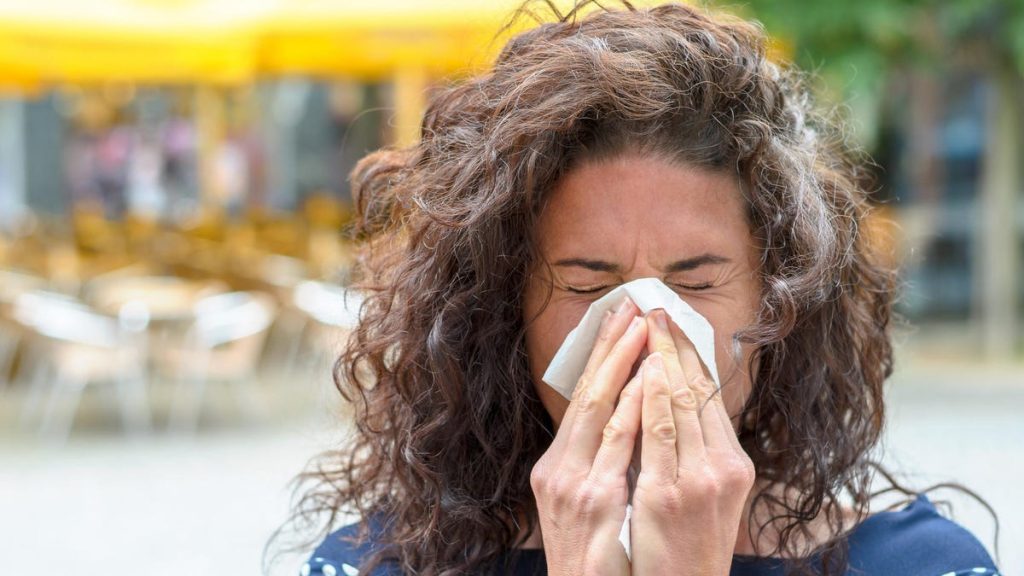Seasonal allergies are a common issue affecting up to 60 million people in the US each year, with symptoms including sneezing, runny nose, and congestion. Pollen from trees, grasses, and weeds is a common trigger for allergic reactions, causing inflammation in the nose and eyes. Additionally, symptoms may vary from person to person, with less common signs such as wheezing, coughing, and headaches also possible. It’s essential to differentiate between allergy symptoms and those of other illnesses like colds or the flu, as well as COVID-19.
Symptoms of seasonal allergies typically occur at specific times of the year, depending on the plants that trigger them. Tree pollen is a common allergen in spring, while grasses and weeds are prevalent in summer and fall, respectively. Indoor allergens like dust mites may also cause allergies in the winter months. Over-the-counter medications, antihistamines, and nasal sprays are common treatments for allergy symptoms, with severe cases requiring prescription medications or allergy shots. Lifestyle changes, such as keeping windows closed, using air purifiers, and washing clothes and hair regularly, can help reduce exposure to allergens.
To manage seasonal allergies effectively, understanding common symptoms like sneezing, itching eyes, and nasal congestion is crucial, as well as recognizing less common signs like coughing and headaches. By identifying triggers and taking appropriate medications, individuals can alleviate their symptoms and improve their quality of life during allergy seasons. Consulting with a healthcare provider for personalized recommendations and treatment plans is essential for individuals with severe allergies. Additionally, incorporating preventive measures like avoiding allergens and using air purifiers can further reduce allergic reactions.
As the climate changes and pollen counts rise, seasonal allergy sufferers may experience worsening symptoms. Understanding the causes and triggers of allergies, such as pollen from trees, grasses, and weeds, can help individuals better manage their condition. By staying informed about pollen forecasts, using appropriate medications, and implementing lifestyle changes, such as showering and wearing dust masks, individuals can reduce their exposure to allergens and minimize the impact of seasonal allergies on their daily lives. With proper care and management, individuals can enjoy the changing seasons without being overwhelmed by allergy symptoms.















